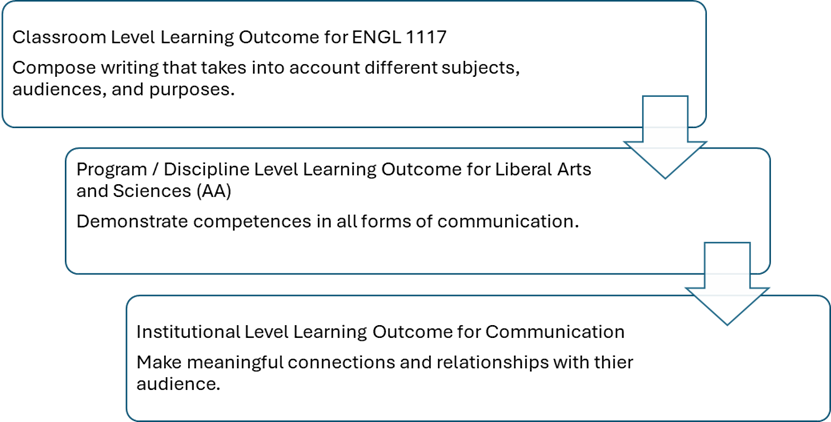RCTC’s mission is to “empower students to thrive in an ever-changing diverse society by providing access to exceptional education”. The knowledge, skills, and abilities necessary to achieve that mission are constantly evolving. For the College to carry out its mission, programs, and services provided must continually shift to meet these needs. The changes occur through effective assessment of student learning that empowers faculty to innovate and adapt their teaching to ensure student learning.
Assessment is an ongoing process aimed at understanding and improving student learning. The process includes setting expectations and then gathering, analyzing, and interpreting evidence to determine how well student performance matches expectations.
Institutional-Level Assessment
At the institution level, RCTC assesses Institutional Core Learning Outcome indicators via alignment of course, program, and Minnesota Transfer Curriculum (MNTC) learning outcomes to Institutional Core Learning Outcomes. Institutional level outcomes are the major competencies developed through an RCTC education, inside and outside the classroom. RCTC’s Institutional Core Learning Outcomes are:
Students will communicate appropriately with their respective audiences.
Students will take responsibility as active learners for achieving their educational and personal goals.
Students will demonstrate an understanding of an respect for human diversity through their words and actions.
Students will think systematically and explore information thoroughly before accepting or formulating a position or conclusion.
Discipline / Program-Level Assessment
Each award (AA, AS, AAS, AFA, diploma, certificate) at RCTC has defined Program Learning Outcomes, which are listed on Program plans for the program of study. Program Learning Outcomes are aligned to Minnesota Transfer Curriculum Learning Outcomes and Institutional Core Learning Outcomes where applicable. Discipline/Program assessment gauges the learning of a group of students. Discipline/Program assessment is used to improve courses, programs, and services.
Classroom-Level Assessment
Each course at RCTC has defined student learning outcomes, which are listed on the Common Course Outline for each course. Course Learning Outcomes are aligned to Program Learning Outcomes, Minnesota Transfer Curriculum Learning Outcomes, and Institutional Core Learning Outcomes where applicable. Students will find Course Learning Outcomes listed on course syllabi. Classroom assessment is aimed at course improvement.
The following is an example of how alignment occurs.

